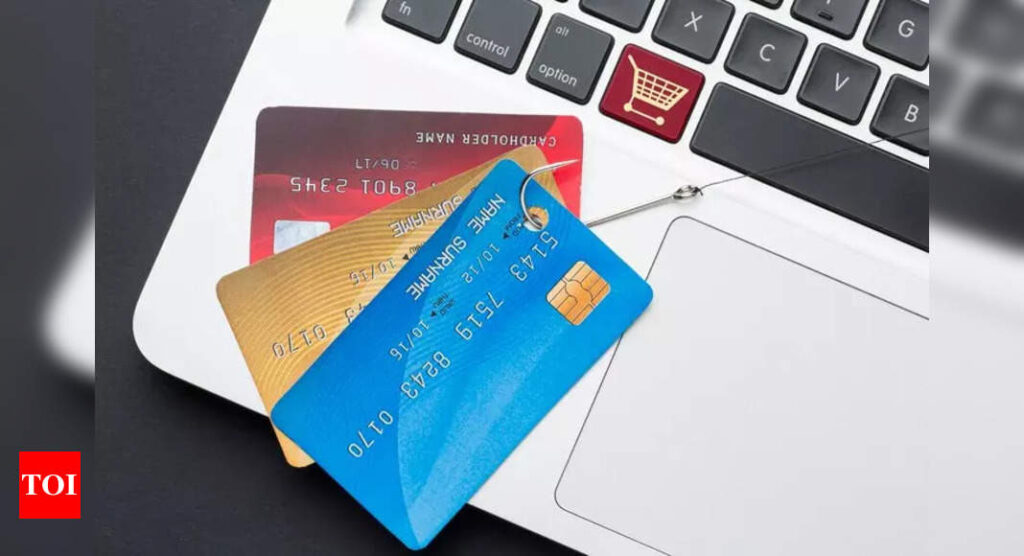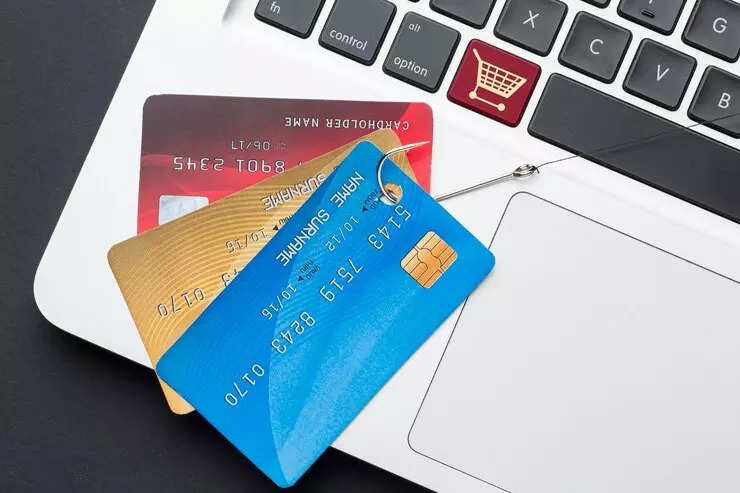[ad_1]
What is credit card fraud?
Credit card fraud encompasses various situations where someone illicitly uses your credit card or account details for unauthorized transactions.Instances include theft or discovery of your card followed by unauthorized purchases, data breaches leading to the exposure of your credit card information, or the use of skimming or shimming devices to copy your card details for fraudulent purposes.
Impact of credit card fraud on your credit score
The repercussions of credit card fraud on your credit score arise when fraudulent transactions or accounts are reported to credit bureaus and subsequently added to your credit reports. For instance, if someone utilizes your card information without your knowledge, the increased credit card balance and resulting higher utilization rate can negatively affect your credit scores.
Alternatively, if a thief gains access to a credit card you rarely use and the card issuer lacks your updated contact information, you may be unaware of unauthorized usage, leading to late payments and damage to your credit history.
In some cases, identity theft may result in someone opening a credit card in your name, causing a hard inquiry and reducing the average age of your accounts, both detrimental to your credit. Detecting such incidents may only occur when reviewing your credit report and finding unfamiliar accounts with outstanding balances.
How credit card issuers help?
Upon reporting fraud, credit card companies may take various measures, such as canceling the card, issuing a replacement, or closing fraudulently opened accounts. The card issuer conducts an investigation, and unless it determines that you authorized the transactions, you typically won’t be held responsible for unauthorized purchases due to zero-liability protection offered by major card networks.
Furthermore, during the investigation, the credit card issuer may update information sent to credit bureaus. Consequently, negative effects on your credit report resulting from the fraud, such as high balances, late payments, or accounts you didn’t open, can be rectified, ceasing their impact on your credit scores.
In the event of inaccuracies in your credit reports, you have the option to file a dispute directly with credit bureaus. However, separate disputes must be submitted to each of the three bureaus that the creditor reports to.
Credit card fraud FAQs
Q1: How does credit card fraud affect my credit?
A: Credit card fraud can impact your credit when unauthorized transactions or accounts resulting from the fraud are reported to credit bureaus. This may lead to increased credit card balances, higher utilization rates, late payments, and other negative entries on your credit report, ultimately affecting your credit scores.
Q2: What are the potential consequences of someone using my rarely-used credit card without my knowledge?
A: If someone gains access to a credit card you rarely use and the card issuer lacks your updated contact information, you may be unaware of unauthorized transactions. This can result in late payments and negative entries on your credit history, adversely affecting your credit scores.
Q3: How do credit card issuers assist in cases of fraud?
A: Once you report credit card fraud, the issuer may take actions such as canceling the card, issuing a replacement, or closing fraudulently opened accounts. The card issuer conducts an investigation, and if it determines you did not authorize the transactions, you generally won’t be held responsible. Major card networks also offer zero-liability protection on fraudulent purchases.
Q4: Can the negative impact of credit card fraud on my credit be reversed?
A: Yes, the credit card issuer, after completing its investigation, may update the information sent to credit bureaus. This can result in the removal of negative entries, such as high balances, late payments, or unauthorized accounts, from your credit report. Consequently, these entries will no longer impact your credit scores.
Q5: What should I do if I discover inaccuracies in my credit reports due to credit card fraud?
A: If you find inaccuracies in your credit reports resulting from credit card fraud, you can file a dispute directly with the credit bureaus. However, it’s important to submit separate disputes to each of the three bureaus that the creditor reports to for a comprehensive resolution.
[ad_2]
Source link











More Stories
India’S Growth Forecast: S&P ups India’s FY’24 growth forecast to 6.4% on robust domestic momentum
India to remain fastest-growing major economy, but demand uneven: Poll
Jack Ma: Jack Ma gets back into business with ‘Ma’s Kitchen Food’